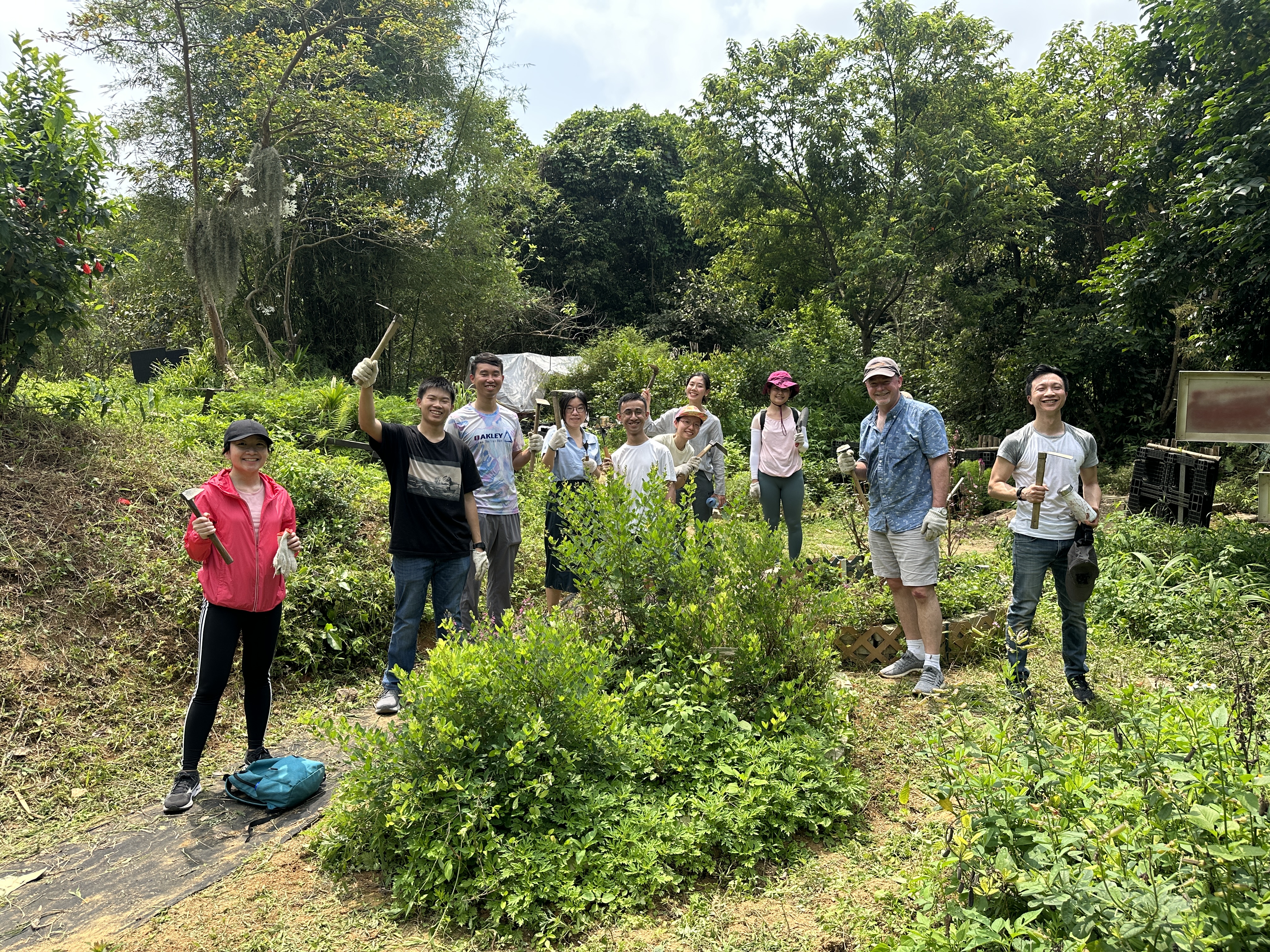Sustainable Operation Committee (OpCo)
What is HKUST Sustainable Operation Committee (OpCo)?
In line with the HKUST 2028 Sustainability Challenge, the university has established the Sustainable Operation Committee (OpCo) under the guidance of the Vice-President for Administration and Business (VPAB).
A number of working groups are formed to implement the plans set by the OpCo, and communicate with frontline workers on how to incorporate these plans into the routine campus operations.
The Green Labs working group is an action-oriented team comprised of representatives from HSEO, SUST, CMO, and CDO. It also receives support from the Green Lab "network/users" from the Building Service team, Laboratory Service team, and HSEO labs. The primary focus of this group is on addressing energy, waste, and water-related issues within laboratories. They achieve this by conducting thorough analysis through measurement and establishing Key Performance Indicators (KPIs). The Green Labs working group is dedicated to implementing sustainable practices and promoting efficient resource management in lab environments.
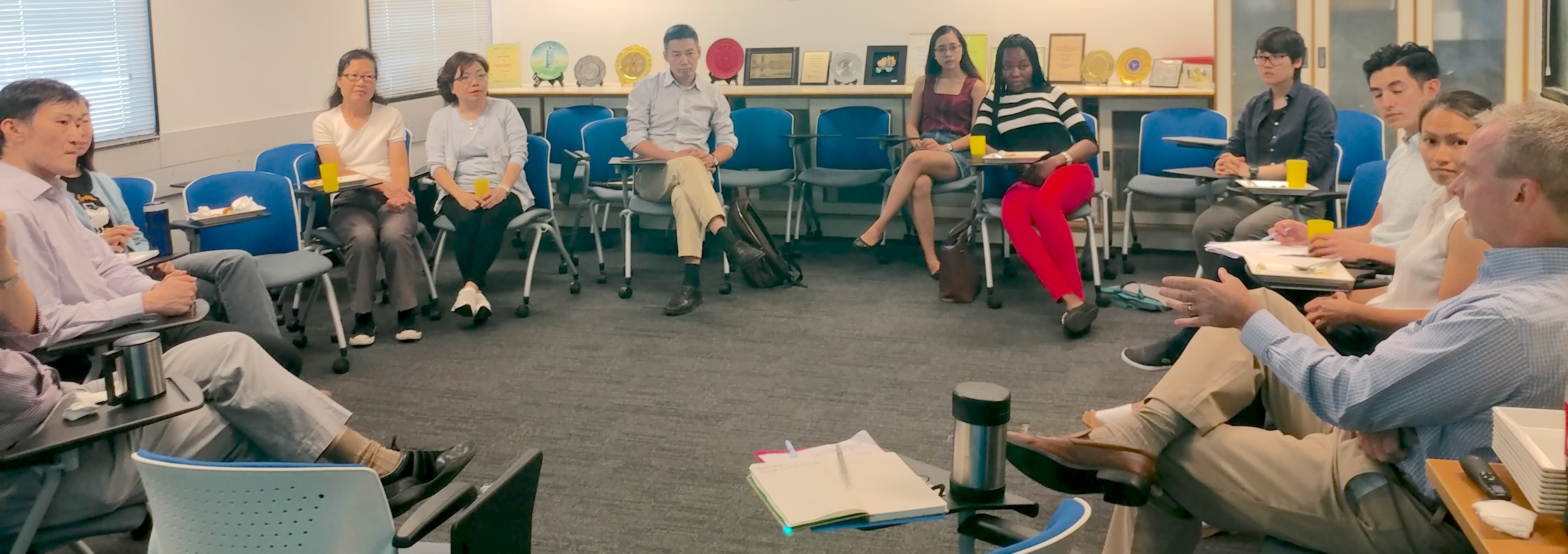
Energy Leadership Team, previously known as the "Energy Technical Working Group," consists of faculty members from the ENVR department as well as representatives from the CMO building services team and SUST. This collaborative team is dedicated to exploring a comprehensive perspective on energy-related matters, including but not limited to over-cooling and other technical challenges, by leveraging the potential of big data.
The Cleaning Steering Committee consists of representatives from the Purchasing Office (PO), CMO, SUST, and cleaning contractors. They meet bi-monthly to discuss waste and recycling management, review data, conduct food waste audits, and prioritize the well-being of cleaners. The committee also promotes the use of environmentally friendly cleaning agents. Their goal is to ensure efficient and sustainable cleaning practices at HKUST.

The Biodiversity Steering Committee comprises representatives from the CMO, SUST, and the landscape contractor. They meet bi-monthly to review landscape operations and discuss sustainable landscaping practices. Their main objective is to enhance biodiversity within the campus environment at HKUST.
Objectives of the OpCo?
It is HKUST policy to ensure full transparency of data and progress for all areas of the 2028 Sustainability Challenge, including all key performance indicators (KPIs) and other measurable items. The operational focus area of the HKUST 2028 Sustainability Challenge includes specific goals and targets in five priority areas:
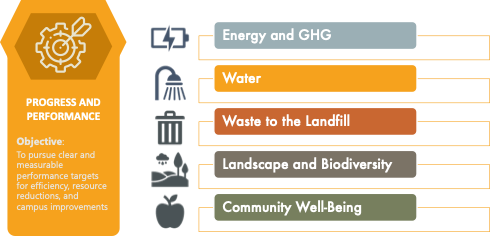
These five priority areas are bound by HKUST’s policy on transparency of sustainability data and include indicators that can measured so that the broader community can have access to the real data that indicates our progress and performance over time. The recent data for each of the indicators is posted on the Progress and Performance page of the Sustainability / Net-Zero Office website.
The Sustainable Operations Executive Committee (OpCo) chaired by the Vice President for Administration and Business oversees the implementation of the progress and performance of this sustainability master plan and reviews and reports progress to the campus community. Its key objective is to pursue clear and measurable performance targets for efficiency, resource reductions, and campus improvements.
Roles of the OpCo Representatives?
The primary purpose of this committee is to provide advice and guidance on projects aimed at achieving sustainability targets within the campus operations. The OpCo convenes monthly meetings to discuss and assess the progress of these initiatives.
During each meeting, the committee members engage in a comprehensive review of ongoing projects, assessing their progress and impact. Additionally, they have the authority to approve proposed initiatives that align with the sustainability objectives of the university. Through these regular meetings, the OpCo plays a crucial role in monitoring and advancing sustainability efforts within HKUST's campus operations.
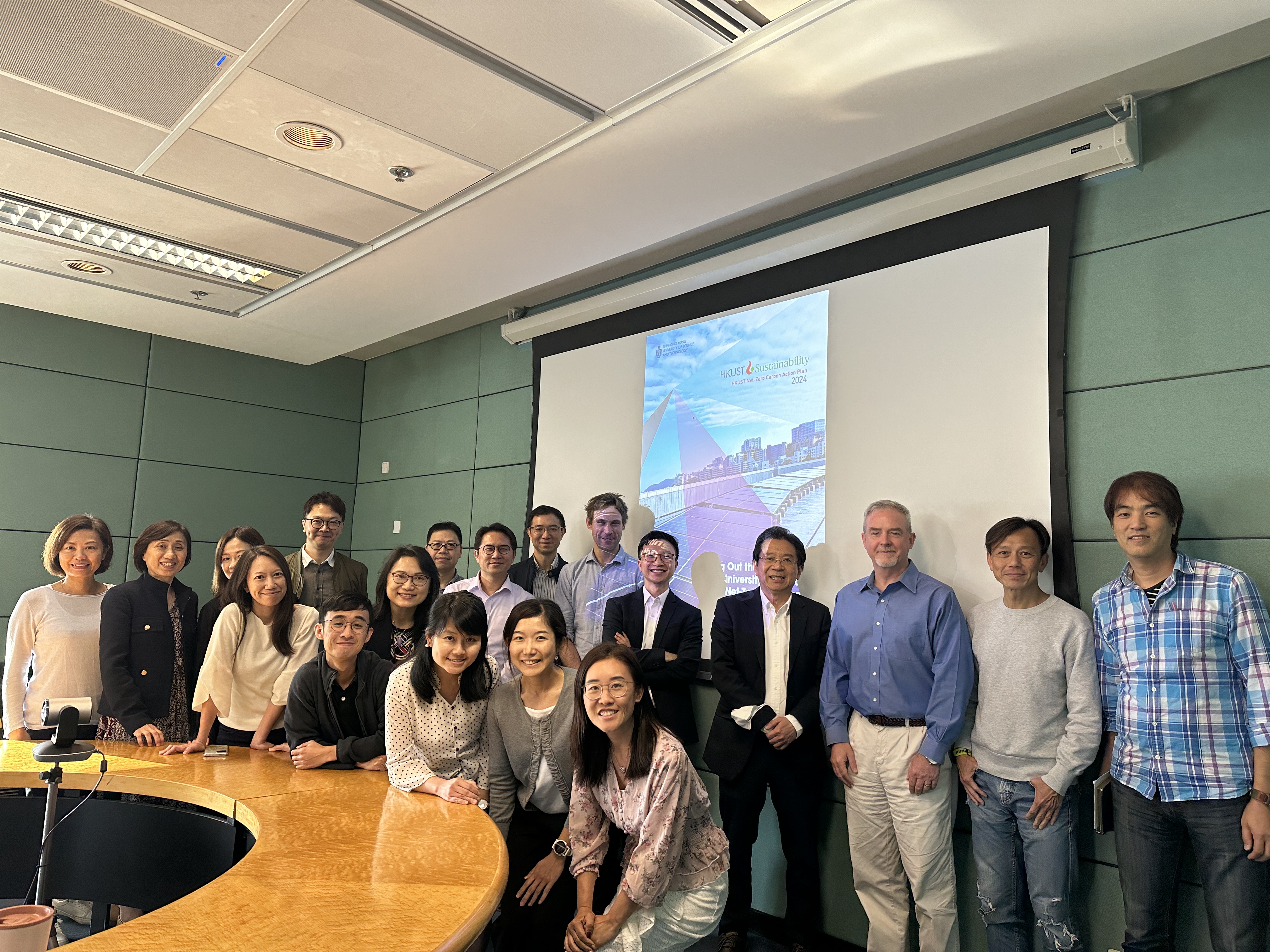
Which offices are part of OpCo now?
The committee comprises a diverse group of members, ensuring representation from various stakeholders. It includes representatives from different administrative offices, faculty members, as well as undergraduate and postgraduate students. This diverse composition enables the OpCo to incorporate different perspectives and opinions into its decision-making process.
For staff and students who would like to join OpCo, please send us an email to green@ust.hk.
What have been achieved by the OpCo members?
OpCo representatives continue to work on data collection, studies, improvement measures and policies to address the 2028 Challenge.
Key achievements:
Energy and GHG
- Energy increased by 0.5% compared to baseline, despite growth in new buildings.
- GHG emissions reduced by 38% compared to baseline, despite growth in new buildings.
- Renewable energy increased by 21%, while installed PV power increased by 296 kW.
- Piloted use of green concrete and recycled reinforcement bars for Innovation Building to achieve embodied carbon intensity of less than 500 kg CO₂-e/m² for superstructure.
- Lab fume hood sash modification and occupancy sensor installation project were implemented in chemistry research labs in the 6/F of the Cheng Yu Tung building, saving 17,300 kWh over 6 months.
Water
- Water reduced by 2% compared to baseline, at 508,000 cubic meters, despite growth in campus population and need to install cooling towers to adapt to rising sea levels.
- Reuse the bleed-off water of the library cooling tower underway completed.
- Recommissioned an underground tank near 1 University Road.
- Piloted drip irrigation in LG7 Community Garden.
- Piloted installation of smart shower-heads in student halls to drive behavior change.
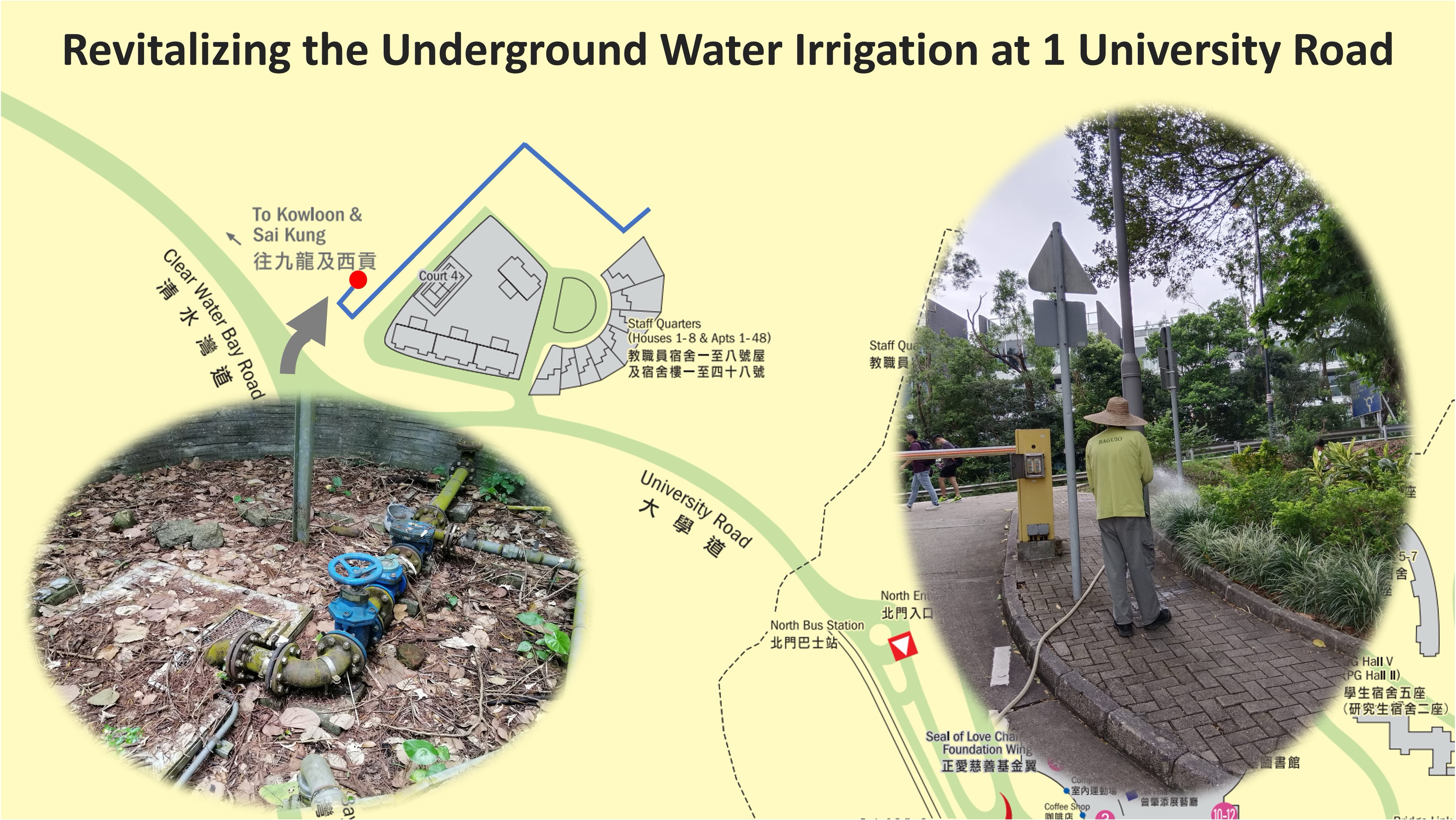
Waste to the Landfill
- Waste reduced by 45% compared to baseline, despite growth in campus population.
- Full launch of lunchbox lending program.
- Piloted Rocket Composter operation upcycling used paper towels and coffee ground.
- Phase 1 pilot program of biodegradable container in restaurants across campus.
- Launch of HKUST Second-Hand Goods Purchasing & Reimbursement Guidelines.
Landscape and Biodiversity
- Founding of Biodiversity Steering Committee implementing sustainable landscaping practices.
- Developed the HKUST Biodiversity Map showcasing the biodiversity of the campus.
- Use of wood chips and on-campus mulched leaves on exposed soil to retain moisture and natural nutrients.
- Planting of orchids in north gate and SSQ BBQ site to enrich landscape features.
Community Well-Being
- 25% improvement in net promoter score for academic staff and 22% improvement for non-academic staff respectively compared to 2021/22.
- Established HKUST Staff Mobile Computing Guidelines.
- Launch of 4 days special leave available to staff for participation in volunteering and wellness / diversity and equal opportunities initiatives organized by the University.
- Initiated Redbird Staff Mentoring Program with Council members.
